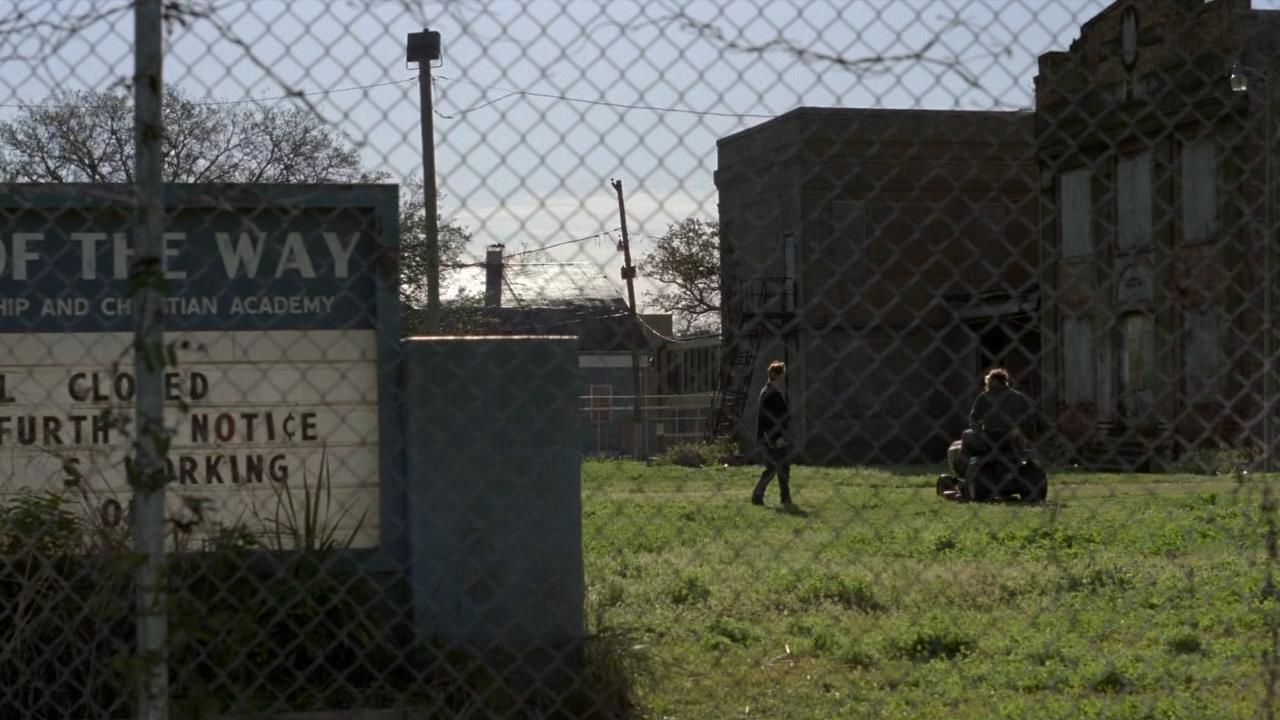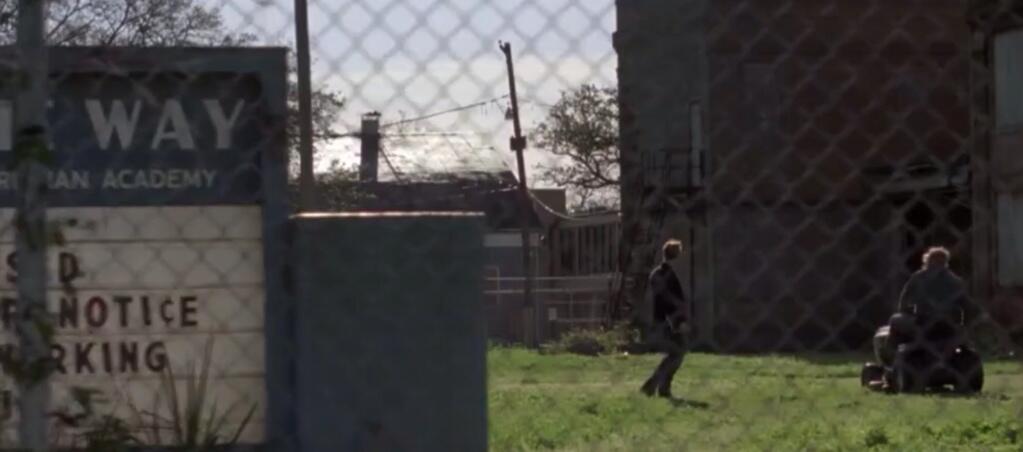MightyHealthy
said what he said
I was less surprised about lawnmower guy's reveal, more surprised I didn't see it was Remus back then.
http://www.rollingstone.com/movies/...tages-of-true-detective-rustin-cohle-20140304
When Matthew McConaughey was preparing for the psychedelically complex character he plays in HBO's twisted, acclaimed True Detective (the final episode airs on Sunday), he made a monster document to help him find his way. The show spans 17 years, during which time Rustin "Rust" Cohle variously exists as a sober, hyperanalytical homicide detective, a coke-and-meth-fueled undercover agent he calls "Crash" and a troubled, alcoholic ex-cop. "I just basically broke it down and made a 450-page graph of where Cohle was and where he was coming from," McConaughey says, flipping through the document until he gets to part he's looking for.
Here, in McConaughey's own words, are the "Four Stages of Rustin Cohle":
1995 Cohle"Back to being a part of the body. He's coming off of years being Crash. He's trying to walk the line. Monk-like. Trying to hold it together. And that's a lot easier with less interaction with others. There's a mechanical side to him. He needs the regimen of the homicide detective. He needs the case to actually survive. One, because he's great at it. And two, because it's going to keep him from killing himself."
Crash"He's our deep, narco wild-ass. A guy who goes all the way. This is where Cohle has all the freedom. He can go over the edge as this guy. And inside, he loves the life of Crash even more, because the shackles are off of him. He knows he may die sooner living this life, but there's a freedom and peace in that knowledge for him."
2002 Cohle"A little looser mix of Crash and the '95 Cohle. A guy who's made his boundaries clear and has to mark less territory, so he's relaxed into his way in the world. But the case is still his lifeline. He has some small hope that there's going to be a way out of his being and pain and criticism, so he makes an effort into domesticity, a la the girlfriend. Only to prove that he was not made for it, and there is no way out. So what does he do? He resigns to his nature, once again."
2012 Cohle."This guy lived longer than he hoped. Fallen prey to his own beliefs. More cynical, angrier, he's had to endure the existence of this shytstorm called life. A little ragged, more rough edges, living in a place where he can manage himself. Not too close. He's not in the CID. But he's not in Alaska. He's a guy who's resigned to his indentured servitude of being alive. But he despises the sentence and the penance. He will not accept defeat. He's not going become a madman, he's not going to kill himself. He wrestles the devil every day, and he realizes that this may last a lot longer than he ever hoped for."

Honestly, that scene of Marty surfing Match.com and BlackPeopleMeet hit me harder than most scenes this season. Harrelson doesn't display any sadness at all. He's resigned himself to this life a long time ago. That's scary to me. That resignation to a life of loneliness knowing that you have no one to blame but yourselfglad you were able to leave that filth
Great. Great scene.

Fam, we're never going to agree about thisMan, you're a funny dude.
What do you think he meant by this part?
 What I really get from the article is a better view of what Rust is/was. Words like "need" and "hope" tell me a lot more about the character than any philosophical monologues ever could. Rustin Cohle is a man in a perpetual struggle to stay alive and his opponent in that struggle is himself and his past. He blames himself for the death of his daughter and failure of his marriage. So he finds solace in his nihilistic view of life but the mere fact that he "makes an effort into domesticity" tells me that there's atleast a sliver of of the old Rust still in there. Honestly a huge part of this show is in the characters nonverbal mannerisms and body language. I've learned so much about these two characters just by a frown or a glance in a certain situation than what they had to say. They're both bullshytters if we keep it real. Rust just sounds awesome saying his bullshyt.
What I really get from the article is a better view of what Rust is/was. Words like "need" and "hope" tell me a lot more about the character than any philosophical monologues ever could. Rustin Cohle is a man in a perpetual struggle to stay alive and his opponent in that struggle is himself and his past. He blames himself for the death of his daughter and failure of his marriage. So he finds solace in his nihilistic view of life but the mere fact that he "makes an effort into domesticity" tells me that there's atleast a sliver of of the old Rust still in there. Honestly a huge part of this show is in the characters nonverbal mannerisms and body language. I've learned so much about these two characters just by a frown or a glance in a certain situation than what they had to say. They're both bullshytters if we keep it real. Rust just sounds awesome saying his bullshyt.Honestly, that scene of Marty surfing Match.com and BlackPeopleMeet hit me harder than most scenes this season. Harrelson doesn't display any sadness at all. He's resigned himself to this life a long time ago. That's scary to me. That resignation to a life of loneliness knowing that you have no one to blame but yourself
Fam, we're never going to agree about thisWhat I really get from the article is a better view of what Rust is/was. Words like "need" and "hope" tell me a lot more about the character than any philosophical monologues ever could. Rustin Cohle is a man in a perpetual struggle to stay alive and his opponent in that struggle is himself and his past. He blames himself for the death of his daughter and failure of his marriage. So he finds solace in his nihilistic view of life but the mere fact that he "makes an effort into domesticity" tells me that there's atleast a sliver of of the old Rust still in there. Honestly a huge part of this show is in the characters nonverbal mannerisms and body language. I've learned so much about these two characters just by a frown or a glance in a certain situation than what they had to say. They're both bullshytters if we keep it real. Rust just sounds awesome saying his bullshyt.
just goes to show you how a true actor gets into the character so well, he knows rust as if he was actually him


From episode 3

Computer...enhance



Nic Pizzolotto just retweeted this.
Fred.

That's just how we cut grass in the south. Well, mainly in the country.Not a spoiler because it's in the last episode, but Remus was making the spiral sign when he lawn mowing that area.
I would disagree slightly. Rust has more integrity than Marty almost every step of the way. Rust speaks and thinks cynically; Marty lives cynically. Rust self-punishes and is aware of it; Marty is undone by his failure to understand the difference between self-sabotage and "striking a balance," as he puts it. Rust is, as he proclaims in an early episode, a pessimist - but his pessimism is rooted in experience. He remains optimistic about the human ability to transcend its own bad programming though. His hyper awareness of this notion of "the debt" one owes in life speaks to a very fundamental good in him. Where Marty blames, Rust assumes responsibility. That assumption of responsibility - for his child's death, for his marriage's dissolution, for a serial killer/sexual sadist being on the loose - sometimes speaks to a certain vanity, but it's noble. Marty just blames, yells, fights, and smacks. Rust's goal is to touch as few lives as possible, while Marty seems intent on inserting himself in too many lives in the worst ways. I think back on Rust's take on having a child, when he talks about the arrogance it takes for two people to conspire in snatching a soul from non-existence into this thresher we call humanity. Marty is full of that sort of arrogance - the scene of his indignation when he's addressing the madam, and gives money to the young whore, that's arrogance rather than compassion, and Rust sees as much. What I'm saying is Rust's bullshyt tends to cover the depth of his humanity, while Marty's serves to mask the shallowness of his own.

